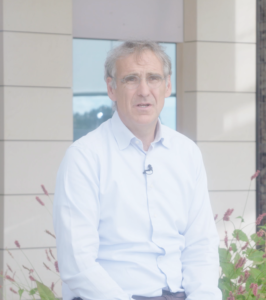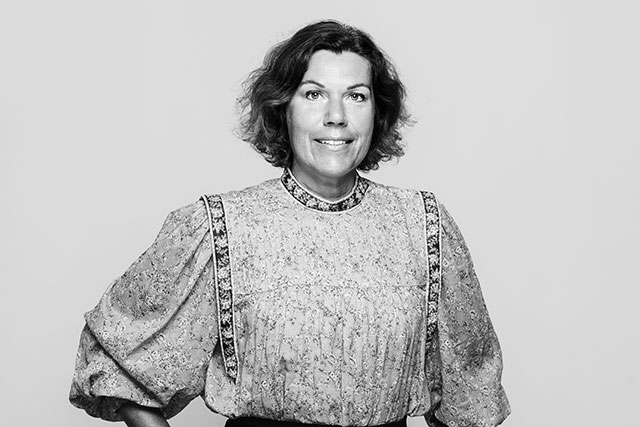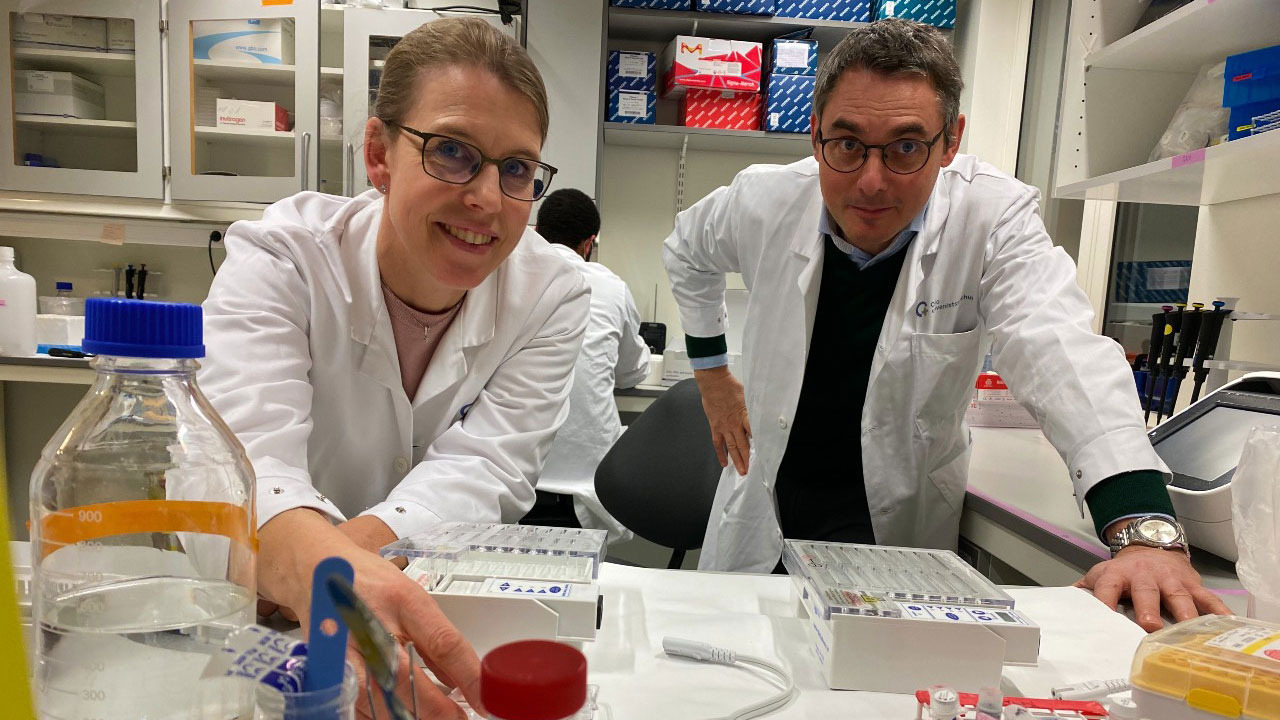In April 2021, the Dutch company CellPoint in-licensed a CD37 CAR from Inven2. It is a kind of cell therapy for treating blood cancer developed by Else Marit Inderberg and Sébastien Wälchli’s research group at the Radium Hospital, Oslo University Hospital. ‘Clinical studies will start within a year,’ says Tol Trimborn, the founder and managing director of CellPoint.
CAR-T is a type of cell/gene/immune therapy that has attracted a lot of attention in recent years.
With its Kymriah, Novartis was first on the market with a CAR-T therapy. It is a CD19 CAR therapy that, in Norway, is only approved for patients with a special subtype of lymphatic cancer up until the age of 25, and for another subtype of lymphatic cancer for adults. This therapy is only given once everything else has been tried, largely because it is complicated and very expensive.
It is because CAR-T is a complex and expensive therapy that the Dutch company CellPoint has taken an innovative approach. Their business idea and the product they deliver involves the production of CAR-T at the individual hospital. This is done using a machine called a ‘cocoon’ developed by a firm called Lonza.
‘We’ve developed an all-in-one concept and a system that enables the “cocoon” to produce CAR-T cells. Today, the genetic conversion of the patients’ T-cells into CAR T-cells takes place in one or two specialised facilities in Europe and the USA, respectively. Our method will be simpler, faster and cheaper,’ says Tol Trimborn, founder and managing director of CellPoint.

Tol Trimborn is founder and managing director of Cellpoint. Photo: Cellpoint.
The company started up in 2019, but it stems from an idea he and a colleague had while with their previous company, which also worked on cell therapy.
‘For a long time, we played with the idea of offering fully automated production of cells for therapy purposes. We started CellPoint in 2019 to achieve this with Car-T therapy,’ says Trimborn.
The company is now discussing with Oslo University Hospital the possibility of offering the hospital its own ‘cocoon’ to produce CAR-T cells for treating patients at the Radium Hospital and of participating in the clinical trial of the new CD37 CAR in-licensed from Inven2. More on that later.
Strong interest in the CAR-T portfolio
Magdalena Gjefle works on business development in Inven2 and has a portfolio comprising several cell therapies. It was Magdalena and former colleague Mika Falck-Hansen who negotiated the agreement with CellPoint.
‘CellPoint is a different kind of enterprise than the traditional pharmaceutical companies, and it brings something genuinely novel to the treatment of cancer patients. We made contact with them in November 2020 and had negotiated the licence for CD37 with them already in April 2021,’ says Gjefle.
She adds that it is especially the CAR-T products she has in the portfolio that are attracting international interest, and that she is in dialogue with several potential licence partners.

Magdalena Gjefle, Business Development and Licensing Executive, Inven2. Photo: Moment Studio/Inven2
Trimborn, on his part, praises the cooperation with Inven2 and says that they are still in dialogue about new possibilities.
‘Our cooperation is extremely good. The agreement on CD37 was put in place quickly and without complications, and everything afterwards has gone very smoothly,’ says Trimborn.
He is very enthusiastic about the licensing of CD37 and believes that it is important to his company and what they want to offer hospitals and patients.
‘Today, we are working on existing CAR, i.e. CD19 and BCMA CAR T, in addition to CD37. The exciting thing about CD37 is that few people are working on it, so that we can be among the first to initiate clinical trials. We plan to start the trial in the second half-year 2022. We believe that the trial can be carried out quickly since most cell therapy trials for the treatment of cancer have short development cycles. An optimistic estimate is that we can apply for marketing authorisation in 2025,’ Trimborn says.
It is especially lymphatic cancer patients who experience no effect of treatment with CD19 who are candidates for treatment with CD37.
New exciting target
Else Marit Inderberg and Sebastien Wälchli’s research group published an article on CD37 already in 2019. Except for three other research groups worldwide, they are the only group currently working on CAR, which they have done for six years now.
‘CD37 is an extremely exciting new target within the field of CAR treatment for cancer. Our research shows that the cancer cells can manage without CD19, so that the body can become resistant to this treatment. That is not the case with CD37, however, so that will be a more stable target,’ says Wälchli.
Inderberg finds it rewarding to have found a new point of attack that can prove beneficial for cancer patients.
‘What CellPoint is doing is really exciting and it will be great to follow the further development of CD37 and also very useful to have such a “cocoon” at the hospital. It will give the patients faster access to treatment with CAR-T in future, given that it works as the company envisages,’ Inderberg says.
Wälchli and Inderberg are both very satisfied with the out-licensing of CD37 to CellPoint, and they point out that it is very hard to attract the interest of the pharmaceutical industry and investors. They both have an excellent track record for innovations: Wälchli and Inderberg are the researchers behind the licences that form the basis for Zelluna Immunotherapy, and Inderberg is also one of the researchers behind Ultimovacs, among other things.
Inven2 has interviewed Wälchli and Inderberg about their research before. You can read the articles here (in Norwegian only): ‘Utvikler banebrytende celleterapi på skuldrene til giganter’ and ‘Jubileumsintervju Inven2 10 år: Else Marit Inderberg’
They both point out that the agreement with CellPoint and the fact that they are trying to make CAR-T therapy more accessible because the cells can be produced locally at hospitals are important to the further development of cell therapy.
‘We are very happy with the cooperation with Inven2 on this licence and hope that more agreements will follow for other products we currently have under development. We do the research and Inven2 attends to the business side, and that’s how we like it,’ says Wälchli.
In conclusion, they emphasise how difficult it can be to get on the radar of interesting international partners when you come from a small country like Norway with little history of research and industry in the pharmaceutical field.
‘However, we have a good track record in relation to cancer, for example, so we need to be prouder of the innovations that have been made and continue to be made here. For example, we use antibodies in our research that Steinar Funderud developed in the 1980s and 1990s, and it’s fantastic for us that they are available in the biobank here and that we don’t have to in-license them,’ Inderberg says.

CellPoint delivers a concept for production of CAR-T cells at each hospital. This is done by a machine called a “cocoon”. Photo: Cellpoint.

